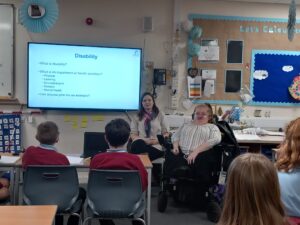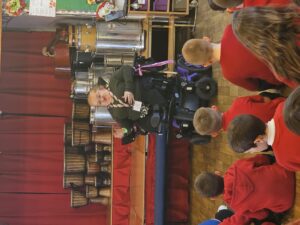Rights Here, Rights Now was a project providing education settings with the tools to effectively teach all learners about the United Nation Convention on the Rights of Disabled People (UNCRDP).
It is important to us that all children and young people have knowledge and understanding of the UNCRDP and can use it in conjunction with the United Nation Convention on Rights of Children (UNCRC). This is especially important to disabled children and young people whose rights are further protected with both Conventions used in tandem.
The work of the project was guided by its Project Advisory Group and was funded by Welsh Government as part of their commitment to incorporating the UNCRDP into Welsh Law, and the need to educate Welsh society about this important Convention.
All of the educational resources produced as part of this project, including a practitioner pack and helpful plans for lessons, are available on the Welsh Government Hwb:
Rights Here, Rights Now on Hwb.
For more information and support in using this material, please contact kat.watkins@disabilitywales.org
*New video and EasyRead Welsh and English versions coming soon.
Visits and outcomes


The project has received positive feedback with practitioners and learners alike coining the training as engaging and funny. It has also proven to make a difference in terms of people’s confidence in talking about and addressing disability rights and the Social Model of Disability.
As one example, Kat’s visit to Libanus Primary School in Blackwood led to learners having the confidence and knowledge to write to Caerphilly Council about access issues. Here’s to the next generation standing up for disability equality!
Tre Uchaf school told us that the discussions which started at the assemblies and workshops we delivered filtered into other lessons with learners developing fantastic ideas about how schools and society as a whole can be more inclusive for disabled people.


